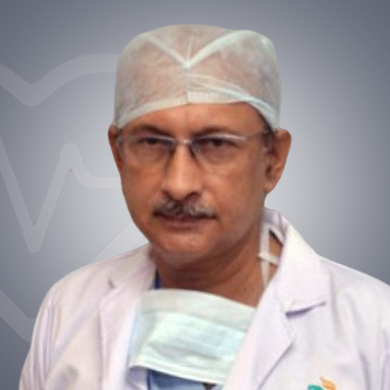
Renal Transplant Surgeon
Apollo Multispecialty Hospitals , Kolkata, India30 Years of experience
Speaks: English
Here is an outline of the conditions that are treated by Dr. Debasish Banerjee, a Kidney Transplant Surgeon.
People who are having some serious infections, that includes tuberculosis, hepatitis and bone infections are those that could be a good candidate for a kidney transplant. Kidney transplant could be a requirement for patients who have recently recovered from cancer or who are suffering from cancer now. Kidney disease or cardiovascular disease can become good reasons for someone to get kidney transplant done.
We bring to you the symptoms and signs which end up affecting the filtering ability of the kidneys to up to 90 percent which means the person has end stage kidney disease and is a good candidate for a kidney transplant.
End-stage renal disease (ESRD) or what is known as Kidney failure is a big sign for you to get a kidney transplant. Patients who have been diabetic for a pretty long time might end up having this disease. Your kidneys could be damaged also due to prolonged history of High Blood Pressure (Hypertension).
The doctor's operating hours are from 10 am to 6 pm, Monday to Saturday, Sunday is an off day. You can be up and about from the surgery in a day or two and reach home in one week.
Popular procedures performed by Dr. Debasish Banerjee are as follows:
Types of kidney transplants are also dependent on whether the donor is alive or deceased. A preemptive kidney transplant actually preempts the need for dialysis to come in at all. It is also important to check if the transplanted kidney is working properly or not and regular checkups post the surgery are required to do so..

Share Your Experience about Dr. Debasish Banerjee

Transplantation is when you put in an organ from a healthy person into someone whose organ is diseased or missing. And a Kidney Transplant Surgeon places a healthy kidney in place of diseased kidney/kidneys. The surgeon not just performs the procedure but handholds you through the preoperative and post operative rehabilitation as well. The recommendations of medicines and tests is also done by them. The surgeon is the most important component of the core team which is inclusive of nurses, technicians and nephrologist.
In order to check if you are the right candidate for a kidney transplant, there are some tests that need to be done such as:
Here is a comprehensive list of additional tests needed before and during the kidney transplant procedure.:
The transplant should happen efficiently and kidneys should work well post acceptance by the body, therefore it is important for the tests to be accomplished at the right time and frequency. Few of these tests are important to know the heart strength and they are Echocardiogram, Electrocardiogram and the cardiac stress test.
You must visit a Kidney Transplant Surgeon if you have any of the commonly seen symptoms associated with a kidney failure. The surgeon can help you preempt the situation of going on a dialysis by assisting you in getting a transplant before your kidney or kidneys fail to such an extent. They also help you with post transplant checkups to see whether your body is accepting the transplanted kidney well. The doctor also consults with you in deciding whether a kidney transplant is the right way to go for you.